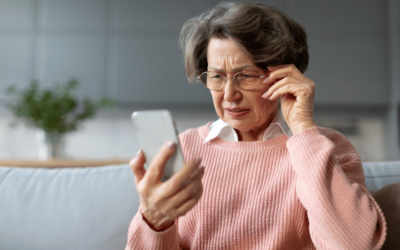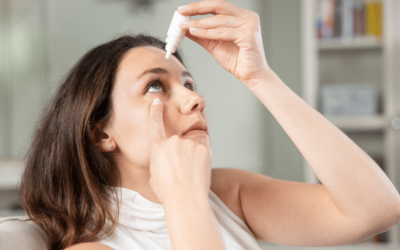Dry eye is a common condition that affects millions of people worldwide. However, what many people may not realize is that women are more likely to suffer from dry eye than men. In fact, studies have shown that women are two to three times more likely to develop dry eye than men. But why is this the case? In this blog post, we will explore the reasons why dry eye affects more women than men and share potential solutions for managing this frustrating condition.
Hormonal changes
One of the main reasons why dry eye tends to affect more women than men is hormonal changes. Women go through a number of hormonal fluctuations throughout their lives, such as during pregnancy, breastfeeding, and menopause. These hormonal changes can lead to a decrease in tear production and quality, which in turn can result in dry eye symptoms. Additionally, hormone replacement therapy and birth control pills can also impact tear production in women.
Cosmetic use
Another factor that contributes to women being more susceptible to dry eye is the use of makeup and skincare products. Many women use makeup on a daily basis, including products like mascara and eyeliner that can block the oil glands along the margins of your eyelids. When these glands become blocked, they can no longer produce an essential part of your tears, resulting in dry eye.
Higher risk of certain medical conditions
Women are also more likely to have certain health conditions that increase their risk of developing dry eye. For example, autoimmune diseases like Sjogren’s syndrome are much more common in women and can cause chronic dry eye. Other conditions such as rheumatoid arthritis and thyroid disorders are also more prevalent in women and can be associated with dry eye symptoms.
Tips for dry eye relief
If you’re experiencing dry eye symptoms such as redness, a gritty sensation, blurry vision, or sensitivity to light, there are several steps you can take to find relief.
- Stay hydrated by drinking plenty of water throughout the day.
- Remember to blink regularly while using digital devices or reading for extended periods to help maintain a healthy tear film.
- Use a humidifier to increase moisture content in the air.
- Use artificial tears or lubricating eye drops throughout the day to relieve irritation and soothe dry eyes.
- Wear wraparound sunglasses when you’re outside.
- Limit screen time and take frequent breaks from screens.
If your symptoms don’t go away or appear to be getting worse, it’s best to see an eye doctor. Our dry eye specialists in Newton and Mooresville provide advanced treatments for dry eye such as low level light therapy (LLLT) and intense pulsed light (IPL) therapy. We also offer vitamins to support eye health and help prevent dry eye symptoms.
In conclusion, while dry eye affects more women than men, that doesn’t mean you have to live in discomfort. By following these tips and seeking professional help from experts like Lifetime Eyecare in Newton or Vision Center of Lake Norman in Morrisville, you can manage your dry eye symptoms effectively and improve your overall quality of life. Reach out to us today for expert care tailored specifically to your needs!





